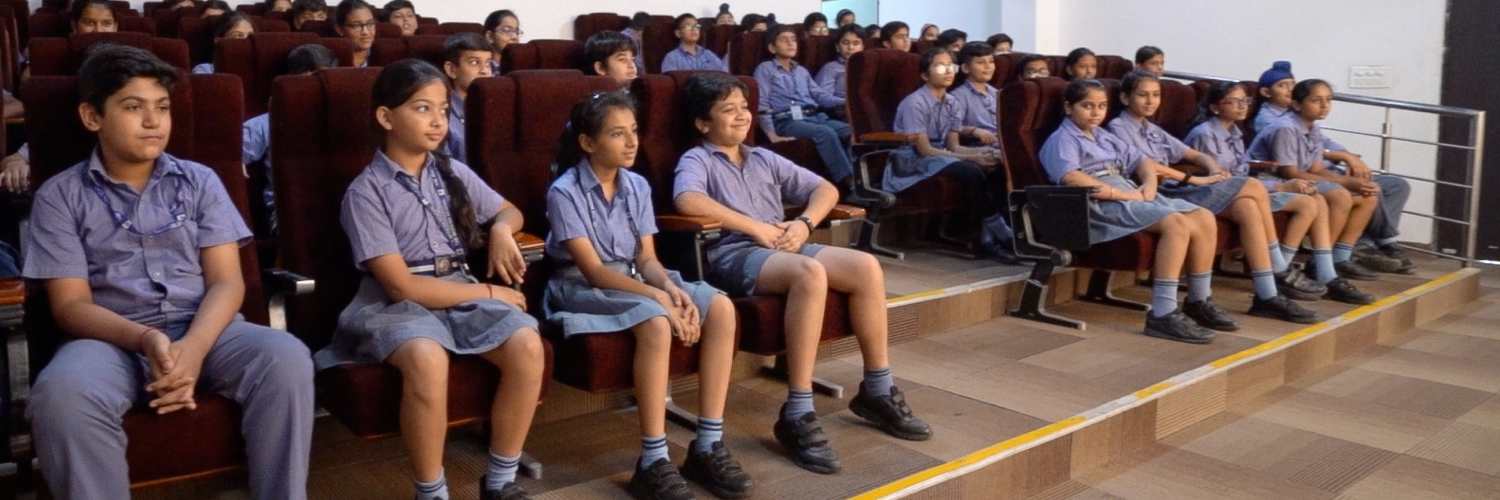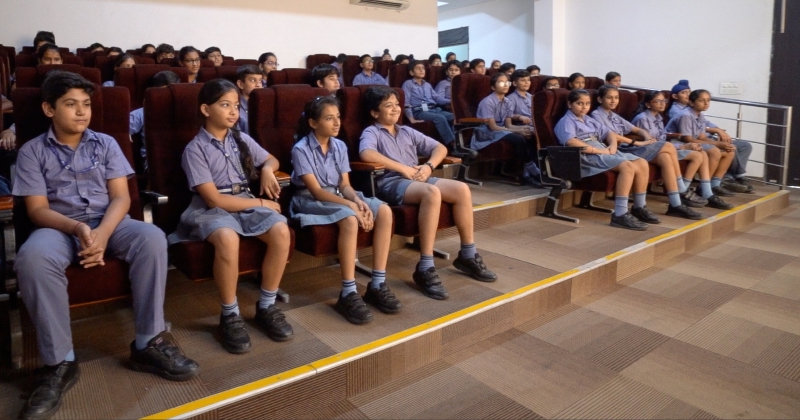
Words are powerful. They allow children to dream, imagine, question, and connect. A child who learns to use language effectively has the tools to share ideas, build relationships, and navigate the world with confidence. Language development in the early years is not just about vocabulary; it is about opening a child’s mind to endless possibilities.
At Modern School Kundli, we view language as the bridge between curiosity and knowledge. Our approach goes beyond traditional learning, focusing on helping children develop strong communication skills that make them confident learners and thoughtful citizens. By fostering an early love for reading, speaking, and expression, we lay the foundation for success in school and beyond.
Why Language Development Matters
Language skills are directly linked to cognitive growth. A child who can communicate well is better equipped to share ideas, ask questions, and develop problem-solving abilities. Strong vocabulary and comprehension also improve reading habits and enhance overall academic performance. Beyond academics, good communication builds confidence, empathy, and social awareness.
At one of the best modern schools in Sonipat., we focus on holistic development and ensure that language learning is enjoyable and meaningful.
Practical Ways to Hone Your Child’s Language Abilities
1. Make Reading a Daily Ritual
Reading aloud to children is one of the most effective ways to boost vocabulary and imagination. Choose age-appropriate storybooks, picture books, or even poems. At home, dedicate 15–20 minutes each day to reading together. Discuss the story, ask what they think might happen next, and encourage them to retell it in their own words.
2. Encourage Everyday Conversations
Simple conversations are powerful tools for language learning. Ask your child open-ended questions like, “What was the best part of your day?” or “How did you feel when you played that game?” This not only expands vocabulary but also helps children organize their thoughts into words.
3. Introduce Word Games and Rhymes
Games like Scrabble Junior, crossword puzzles, or even simple word-building activities can make language learning fun. Rhymes and songs are equally effective, especially for younger children, as they reinforce rhythm, pronunciation, and memory.
4. Limit Passive Screen Time
While educational programs can be helpful in moderation, passive screen time does not stimulate real conversation. Instead, use multimedia in interactive ways—pause videos to discuss the storyline or ask children to describe what they see.
5. Create a Print-Rich Environment
Surround children with books, charts, and labels. Having words visible around them builds recognition and early literacy skills. For example, labelling household items or classroom corners makes word learning natural and engaging.


6. Encourage Storytelling and Role-Play
Ask children to make up their own stories, even if they are short and simple. Role-play activities, like pretending to be a shopkeeper, doctor, or teacher, help children practice dialogue and vocabulary in fun contexts.
7. Support Writing from an Early Age
Encourage your child to keep a journal, write thank-you notes, or create picture stories. Even drawing paired with captions strengthens early writing skills and teaches children the connection between spoken and written language.
8. Model Good Communication
Children imitate adults. When parents and teachers use rich vocabulary, clear sentences, and respectful listening, children pick up on these habits naturally. Avoid baby talk—speak to them in complete sentences, and they will learn to respond in kind.
9. Celebrate Multilingualism
In today’s world, knowing more than one language is a gift. Encourage children to appreciate and practice their mother tongue while also embracing English and other languages. This builds confidence and cognitive flexibility.
10. Be Patient and Encouraging
Language development is gradual. Every child learns at their own pace, so it’s important to encourage rather than pressure them. Celebrate small milestones, whether it’s pronouncing a new word correctly or narrating a short story.
How Modern School Kundli Nurtures Language Growth
Being the Top CBSE School in Sonipat, we create a vibrant and interactive learning environment where language development happens naturally. Classrooms are designed to be print-rich spaces with charts, labels, and books that stimulate curiosity. Teachers use storytelling, role-play, group discussions, and activity-based learning to make lessons engaging and meaningful.
Our curriculum places equal emphasis on listening, speaking, reading, and writing. From recitation and debate activities to creative writing exercises and dramatisation, students are provided with ample opportunities to express themselves confidently. We also encourage reading habits through our well-stocked libraries and regular storytelling sessions, while technology is integrated thoughtfully to enhance language learning without replacing human interaction.
By nurturing curiosity, creativity, and expression, Modern School Kundli, the Best CBSE School in Delhi, ensures that every child grows into a confident communicator who can thrive both academically and socially.